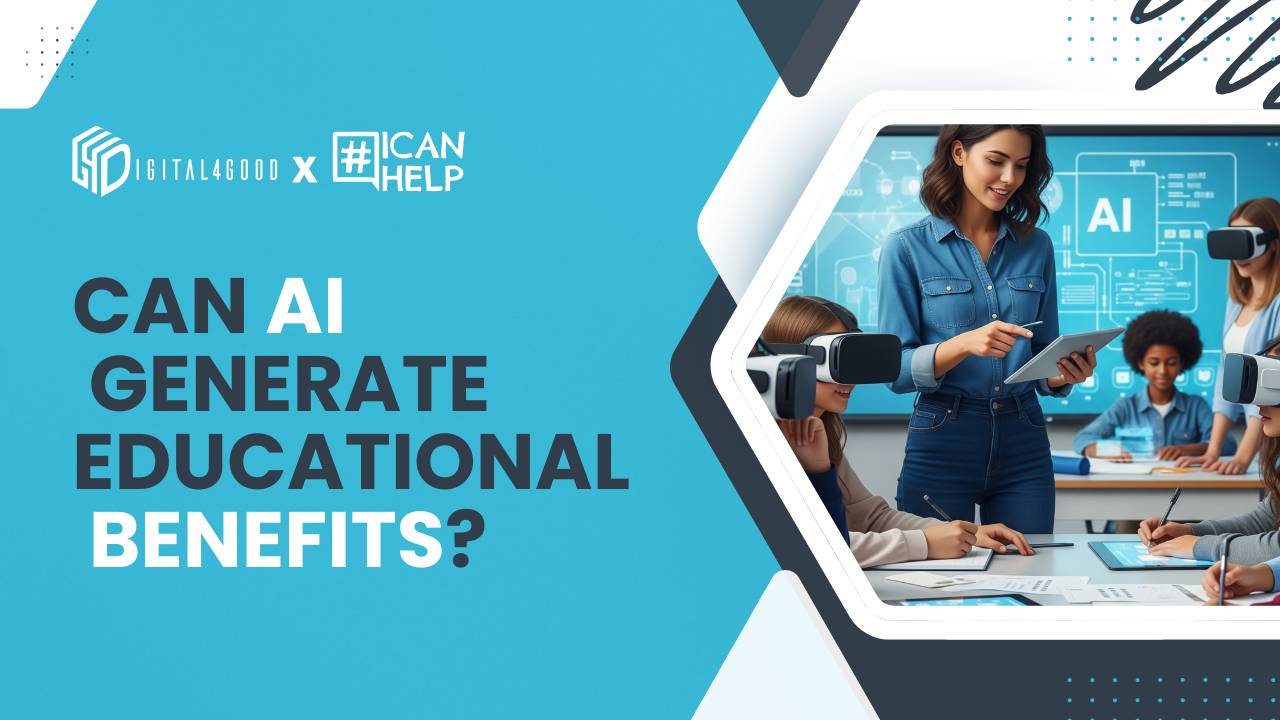Can AI Generate Educational Benefits?
Oct 14, 2025
By: Camille Greenwell | Seasonal Public Relations Intern | Digital4Good
AI is everywhere. We can find it in our search engines, art, chat rooms, and more. Its existence and purpose have become controversial, from growing concerns over the automation of human tasks to AI systems’ environmental impacts. However, there’s no denying the ubiquity of generative AI in numerous sectors, including education.
AI in Education
AI has been a classroom tool for years now, quietly operating in sites and applications such as Google Classroom. However, the now easily accessible and ever-evolving phenomenon of generative AI presents a new world of possibilities for students and teachers.
Here are just a few ways AI has made learning and teaching more accessible and efficient.
Benefits for Students
- Digital note-takers and productivity tools organize, summarize, and simplify information to make studying easier and more efficient.
- AI can make learning material more accessible to students with cognitive and physical disabilities (e.g. real-time closed captions and speech-to-text software).
- AI tutoring programs provide personalized experiences for students, tailoring their systems to students’ preferred pace and teaching style.
Benefits for Teachers
- AI tools can grade and provide basic feedback on tests and assignments so teachers can focus their attention on more complex tasks.
- AI tools help teachers recognize learning patterns in the classroom, allowing for adjustment and growth in teaching practices.
- Generative AI can brainstorm ideas for new, innovative engagement experiences.
The Downsides of AI
Despite the opportunities that AI presents, several issues should be taken into consideration. Ethical concerns such as potential algorithmic biases, environmental impacts of AI, and academic dishonesty can create conflict in educational spaces. Given how prevalent AI is in our world, it is important for students and teachers alike to recognize the advantages and disadvantages of this tool and to maintain proper regulation of its functions.
Cheating is one of the biggest concerns that have arisen from the integration of AI in the classroom. According to a survey by Common Sense Media, 2 in 5 teens use generative AI to assist with school assignments, from asking for help on a problem to generating entire essays. With a tool so accessible and easy to use, it is vital that schools develop effective technology policies and educate students on AI literacy.
AI should act as a supplement — not a replacement — for our own skills and learning experiences. Digital4Good provides essential digital citizenship curricula to educate teachers and students alike on the safe, responsible use of digital technology. Visit our website to discover how Digital4Good can support your classroom.
Stay connected with news and updates!
Join our mailing list to receive the latest news and updates from our team.
Don't worry, your information will not be shared.
We hate SPAM. We will never sell your information, for any reason.


